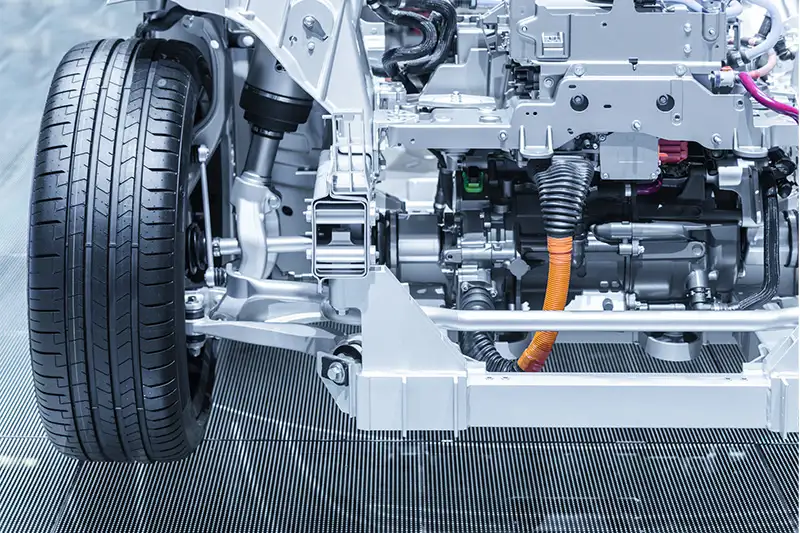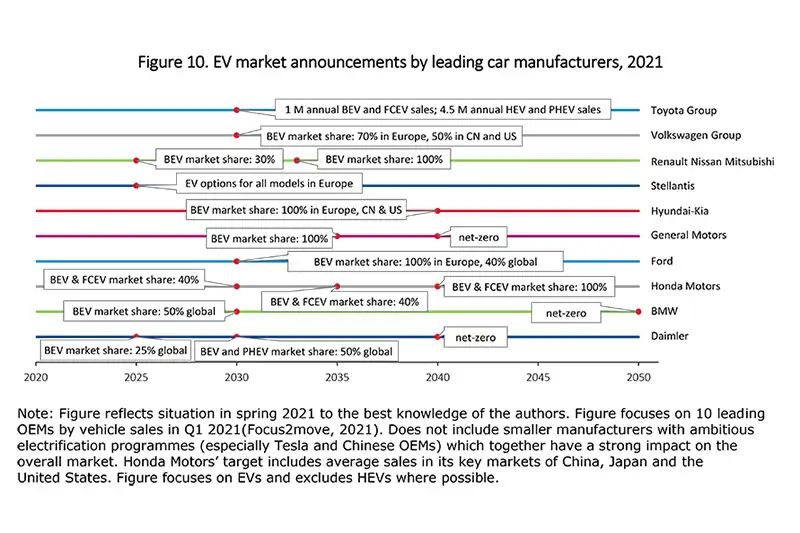ITF: Clean vehicles report provides in-depth analysis and policy recommendations
22 July 2021

A new report by GFEI partner the International Transport Forum (ITF) highlights policy actions that can help support the shift to clean vehicles. The report identifies technologies capable of helping transition road transport to clean vehicles in a cost-effective manner. It covers passenger cars, light commercial vehicles, buses and trucks and focuses on large vehicle markets and major economies, namely China, Europe, Japan, Korea and the United States. It assesses how policies can promote this transition in a way that can also foster inclusive economic growth and sustainable development, and how the transport and energy sectors will likely respond to these.
The report includes over 70 pages of detailed analysis, including life-cycle analysis that explores the greenhouse gas emissions associated with vehicle production and use, for different vehicle types and renewable energy mixes. It also examines how driving distance can affect vehicle emissions, particularly for plug-in hybrid vehicles in electric mode. It also explores the requirements for heavy-duty vehicles, finding that in most regions, the busiest 20% of main roads account for approximately 80% of HDV travel – with implications for the charging network and possibly electric road systems. It also includes a focus on hydrogen, setting out the challenges and barriers to reducing costs, and synthetic fuels, including a discussion on the thermodynamic losses that lead to low efficiency. It also provides a detailed summary of recent policy announcements, both by government and industry, a review of the global market for electric vehicles and batteries, and a summary of recent projections of future global electric vehicle sales share to 2050. Finally, the report looks at emerging challenges, including digital technology, sharing and impacts of the transition to electric vehicles on jobs and government revenues.

The study finds that policies have stimulated innovation and investment in clean vehicle and energy technologies and have led to cost reductions and productivity improvements around battery and renewable energy technology. New competitors have also entered the market in recent years, looking to develop technological advantages over incumbents. Governments are also increasingly setting ambitious decarbonisation targets, and putting in place economic stimuli to support the economic recovery from COVID-19 and the transition to cleaner vehicles.
The recommendations include:
- Targeted policy action such as technical standards and regulations; energy prices and taxes that favour clean vehicles; procurement programmes; regulatory requirements based on life-cycle impacts; charging infrastructure and distribution networks for low-carbon energy vectors.
- Prioritising the electrification of the vehicle fleet, including managing energy demand and supply, particularly renewable sources, such as wind and solar.
- Improving resource efficiency, including action to avoid oversized vehicles, and extending the life of batteries into second-life applications.
- Exploring road user charging to replace falling revenues from fossil fuel taxes.
- Ensuring COVID-19 recovery funds invest in clean and green infrastructure to support the transition, and provide support to workers in these industries
- Support the development of other low-carbon technologies, including hydrogen and synthetic fuels for hard-to-electrify vehicles.